- Home
- Tim LaHaye
Left Behind Page 14
Left Behind Read online
Page 14
“Dirk’s death was ruled a suicide and that was that. Scene cleared, body cremated. I asked about an autopsy and was laughed off. My superior officer, Captain Sullivan, asked what I thought an autopsy would show. I told him abrasions, scrapes, signs of a struggle. He asked if I thought it made sense that a bloke would wrestle with himself before shooting himself. I kept the personal knowledge to myself.”
“Why?”
“I smelled something.”
“What if I put a story in an international magazine that pointed out the discrepancies? Something would have to happen.”
“I have been told to tell you to go home and forget you ever heard about this suicide.”
Buck squinted in disbelief. “Nobody knew I was coming.”
“I think that’s true, but somebody assumed you might show up. I wasn’t surprised you came.”
“Why should you be? My friend is dead, ostensibly by his own hand. I wasn’t going to ignore that.”
“You’re going to ignore it now.”
“You think I’m going to turn coward just because you did?”
“Cameron, you know me better than that.”
“I wonder if I know you at all! I thought we were kindred spirits. We were justice freaks, Alan. Seekers of truth. I’m a journalist; you’re an investigator. We’re skeptics. What is this running from the truth, especially when it concerns our friend?”
“Did you hear me? I said I was told to call you off, if and when you showed up.”
“Then why did you let me come to the Yard?”
“I’d have been in trouble if I had tipped you off.”
“With whom?”
“I thought you’d never ask. I was visited by what you in America call a goon.”
“A heavy?”
“Precisely.”
“He threatened you?”
“He did. He said if I didn’t want what had happened to my friend to happen to me or to my family, I would do as he said. I was afraid he was the same guy who had murdered Dirk.”
“And he probably was. So, why didn’t you report the threat?”
“I was going to. I started by trying to handle it myself. I told him he didn’t have to worry about me. The next day I went to the exchange and asked for a meeting with Mr. Todd-Cothran.”
“The big man himself?”
“In the flesh. I don’t have an appointment, of course, but I insist it’s Scotland Yard business, and he allows me in. His very office is intimidating. All mahogany and dark green draperies. Well, I get right down to business. I tell him, ‘Sir, I believe you’ve had an employee murdered.’ And just as calm as you like, he says, ‘Tell you what, governor’—which is a term cockneys use on each other, not something people of his station usually call people of mine. Anyway, he says, ‘Tell you what, governor, the next time somebody visits your flat at ten o’clock at night, as a certain gentleman did last night, greet him for me, won’t you?’”
“What did you say?”
“What could I say? I was stunned to silence! I just looked at him and nodded. ‘And let me tell you something else,’ he says. ‘Tell your friend Williams to keep out of this.’ I say, ‘Williams?’ like I don’t know who he’s talking about. He ignores that because, of course, he knows better.”
“Somebody listened to Dirk’s voice mail.”
“No question. And he says, ‘If he needs convincing, just tell him I’m as partial as he is to Dad and Jeff.’ That your brother?”
Buck nodded. “So you caved?”
“What was I supposed to do? I tried playing Mr. Brave Boy. I said, ‘I could be wired. I could be recording this conversation.’ Cool as can be, he said, ‘Metal detector would have picked it up.’ ‘I’ve got a good memory. I’ll expose you,’ I told him. He said, ‘At your own risk, governor. Who’s going to believe you over me? Marianne wouldn’t even believe you—of course, she might not be healthy enough to understand.’”
“Marianne?”
“My sister. But that’s not the half of it. As if he needs to drive the point home, he called my captain on his speakerphone. He said to him, ‘Sullivan, if one of your men was to come to my office and harass me about anything, what should I do?’ And Sullivan, one of my idols, sounded like a little baby. He said, ‘Mr. Todd-Cothran, sir, you do whatever you need to do.’ And Todd-Cothran said, ‘What if I was to kill him where he sits?’ And Sullivan said, ‘Sir, I’m sure it would be justifiable homicide.’ Now get this. Todd-Cothran said, right over the phone to Scotland Yard, where you know they record every incoming call, and Todd-Cothran knows it just as well, ‘What if his name happened to be Alan Tompkins?’ Just like that, plain as day. And Sullivan said, ‘I’d come over there and dispose of the body myself.’ Well, I got the picture.”
“So you have no one to turn to.”
“Nobody I can think of.”
“And I’m supposed to just turn tail and run.”
Alan nodded. “I have to report back to Todd-Cothran that I’ve delivered the message. He’ll expect you on the next plane out.”
“And if I’m not?”
“No guarantees, but I wouldn’t push it.”
Buck shoved the plates aside and pushed his chair back. “Alan, you don’t know me well, but you have to know I’m not the type of guy who takes this stuff sitting down.”
“That’s what I was afraid of. I’m not either, but where do I turn? What do I do? You’d think someone somewhere can be trusted, but what can anyone do? If this proves Dirk was right, that he got too close to some clandestine thing Todd-Cothran was into, where does it end? Does it include your man Stonagal? And how about the others on the international team of financiers they meet with? Have you considered that they may own everybody? I grew up reading the stories about your Chicago mobsters who had paid off cops and judges and even politicians. No one could touch them.”
Buck nodded. “No one could touch them except the ones who couldn’t be bought.”
“The Untouchables?”
“Those were my heroes,” Buck said.
“Mine too,” Alan said. “That’s why I’m an investigator. But if the Yard is dirty, who do I turn to?”
Buck rested his chin in his hand. “Do you think you’re being watched? Followed?”
“I’ve been looking for that. So far, no.”
“Nobody knows where we are now?”
“I tried to keep an eye out for a tail. In my professional opinion, we’re here unnoticed. What are you going to do, Cameron?”
“There’s precious little I can do here, apparently. Maybe I’ll head back right away under a different name and make it look, to whoever cares, like I’m being obstinate and staying here.”
“What’s the use?”
“I may be scared, Alan, but I will look for my angle. And somehow I will find the person with the clout to help. I don’t know your country well enough to know whom to trust. Of course I trust you, but you’ve been incapacitated.”
“Am I weak, Cameron? Do you see that I have a choice?”
Buck shook his head. “I feel for you,” he said. “I can’t say what I’d do in your place.”
The barmaid was making some sort of an announcement, asking people a question at every other table or so. As she neared them, Buck and Alan fell silent to hear. “Anyone drivin’ a light green sedan? Fella says the inside light is on.”
“That’s mine,” Alan said. “I don’t remember even having the inside light on.”
“Me either,” Buck said, “but it was light out when we got here. Maybe we didn’t notice.”
“I’ll get it. Probably won’t hurt anything, but that old beater’s battery can’t take much.”
“Careful,” Buck said. “Be sure no one was tampering with it.”
“Unlikely. We’re right in front, remember.”
Buck leaned out of his chair and followed Alan with his eyes as the investigator strolled out. Sure enough, the car’s inside light could be seen from inside the pub. Alan went around to the dr
iver’s side and reached in to turn the light off. When he came back he said, “Gettin’ daft in my old age. Next I’ll be leavin’ the headlights on.”
Buck was sad, thinking of his friend’s predicament. What a spot, working at something you’d wanted all your life to do and knowing that your superiors were beholden to what amounted to an international thug. “I’m going to call the airport and see if I can get a flight tonight.”
“Nothin’s going your way this time of the evening,” Alan said.
“I’ll take something to Frankfurt and head back from there in the morning. I don’t think I should test my luck here.”
“There’s a phone up by the door. I’ll pay the girl.”
“I insist,” Buck said, sliding a fifty-Euro bill across the table.
Buck was on the phone to Heathrow while Alan counted the change from the barmaid. Buck got a seat on a flight to Frankfurt forty-five minutes later that would allow him to catch a Sunday morning flight to JFK.
“Oh, Kennedy’s open, is it?” he said.
“Just an hour ago,” the woman said. “Limited flights, but your Pan-Continental out of Germany goes there in the morning. How many passengers?”
“One.”
“Name?”
Buck peeked in his wallet to remind himself of the name on his phony British passport. “Pardon?” he said, stalling, as Alan approached.
“Name, sir.”
“Oh, sorry. Oreskovich. George Oreskovich.”
Alan mouthed that he would be in the car. Buck nodded.
“All right, sir,” the woman said. “You’re all set with a flight to Frankfurt this evening, continuing to JFK in New York tomorrow. Can I do anything else for you?”
“No, thank you.”
As Buck hung up, the door of the pub was blown into the room and a blinding flash and deafening crash sent patrons screaming to the floor. As people crept to the door to see what had happened, Buck stared in horror at the frame and melted tires of what had been Alan’s Scotland Yard–issue sedan. Windows had been blown out all up and down the street and a siren was already sounding. A leg and part of a torso lay on the sidewalk—the remains of Alan Tompkins.
As the patrons surged out to get a look at the burning wreckage, Buck elbowed his way through them, pulling his real passport and identification from his wallet. In the confusion he flipped the documents near what was left of the car and hoped they wouldn’t get burned beyond readability. Whoever wanted him dead could assume him dead. Then he slipped through the crowd into the now-empty pub and sprinted to the back. But there was no back door, only a window. He raised it and crawled through, finding himself in a two-foot alleyway between buildings. Scraping his clothes on both sides as he hurried to a side street, he ran two blocks and hailed a cab. “The Tavistock,” he said.
A few minutes later, when the cabbie was within three blocks of his hotel, Buck saw squad cars in front of the place and blocking traffic. “Just run me out to Heathrow, please,” he said. He realized he had left his laptop among his things, but he had no choice. He had transferred the best stuff electronically already, but who knew who would have access to his material now?
“You don’t need anything at the hotel then?” the cabbie said.
“No. I was just going to see someone.”
“Very good, sir.”
More authorities seemed to be combing Heathrow. “You wouldn’t know where a fellow could get a hat like yours, would you?” Buck asked the cabbie as he paid.
“This old thing? I might be persuaded to part with it. I’ve got more than one other just like it. A souvenir, eh?”
“Will this do?” Buck said, pressing a large bill into his hand.
“It’ll more than do, sir, and thank you kindly.” The driver removed his official London cabbie pin and handed over the cap.
Buck pressed the too-large fisherman’s style hat down over his ears and hurried into the terminal. He paid cash for his tickets in the name of George Oreskovich, a naturalized Englishman from Poland on his way to a holiday in the States, via Frankfurt. He was in the air before the authorities knew he was gone.
CHAPTER 11
Rayford was glad he could take Chloe out for a drive Saturday after having been cooped up with their grief. He was glad she had agreed to accompany him to the church.
Chloe had been sleepy and quiet all day. She had mentioned the idea of dropping out of the university for a semester and taking some Internet classes. Rayford liked it. He was thinking of her. Then he realized she was thinking of him, and he was touched.
As they chatted on the short drive, he reminded her that after their day trip to Atlanta Monday they would have to drive home separately from O’Hare so he could get his car back. She smiled at him. “I think I can handle that, now that I’m twenty.”
“I do treat you like a little girl sometimes, don’t I?” he said.
“Not too much anymore,” she said. “You can make up for it, though.”
“I know what you’re going to say.”
“You don’t either,” she said. “Guess.”
“You’re going to say I can make up for treating you like a little girl by letting you have your own mind today, by not trying to talk you into anything.”
“That goes without saying, I hope. But you’re wrong, smart guy. I was going to say you could convince me you see me as a responsible adult by letting me drive your car back from the airport Monday.”
“That’s easy,” Rayford said, suddenly switching to a babyish voice. “Would that make you feel like a big girl? OK, Daddy will do that.”
She punched him and smiled, then quickly sobered. “It’s amazing what amuses me these days,” she said. “Good grief, I feel like an awful person.”
Rayford let that comment hang in the air as he turned the corner and the tasteful little church came into view. “Don’t make too much of what I just said,” Chloe said. “I don’t have to come in, do I?”
“No, but I’d appreciate it.”
She pursed her lips and shook her head, but when he parked and got out, she followed.
Bruce Barnes was short and slightly pudgy, with curly hair and wire-rimmed glasses. He dressed casually but with class, and Rayford guessed him to be in his early thirties. He emerged from the sanctuary with a small vacuum in his hands. “Sorry,” he said. “You must be the Steeles. I’m kind of the whole staff around here now, except for Loretta.”
“Hello,” an older woman said from behind Rayford and Chloe. She stood in the doorway of the church offices sunken-eyed and disheveled, as if she’d come through a war. After pleasantries she retreated to a desk in the outer office.
“She’s putting together a little program for tomorrow,” Barnes said. “Tough thing is, we have no idea how many to expect. Will you be here?”
“Not sure yet,” Rayford said. “I probably will be.”
They both looked at Chloe. She smiled politely. “I probably won’t be,” she said.
“Well, I’ve got the DVD for you,” Barnes said. “But I’d like to ask for a few more minutes of your time.”
“I’ve got time,” Rayford said.
“I’m with him,” Chloe said resignedly.
Barnes led them to the senior pastor’s office. “I don’t sit at his desk or use his library,” the younger man said, “but I do work in here at his conference table. I don’t know what’s going to happen to me or to the church, and I certainly don’t want to be presumptuous. I can’t imagine God would call me to take over this work, but if he does, I want to be ready.”
“And how will he call you?” Chloe said, a smile playing at her mouth. “By phone?”
Barnes didn’t respond in kind. “To tell you the truth, it wouldn’t surprise me. I don’t know about you, but he got my attention last week. A phone call from heaven would have been less traumatic.”
Chloe raised her eyebrows, apparently in surrender to his point.
“Folks, Loretta there looks like I feel. We’re shell-shocked and w
e’re devastated, because we know exactly what happened.”
“Or you think you do,” Chloe said. Rayford tried to catch her eye to encourage her to back off, but she seemed unwilling to look at him. “There’s every kind of theory you want on every TV show in the country.”
“I know that,” Barnes said.
“And each is self-serving,” she added. “The tabloids say it was space invaders, which would prove the stupid stories they’ve been running for years. The government says it’s some sort of enemy, so we can spend more on high-tech defense. You’re going to say it was God so you can start rebuilding your church.”
Bruce Barnes sat back and looked at Chloe, then at her father. “I’m going to ask you something,” he said, turning to her again. “Could you let me tell you my story briefly, without interrupting or saying anything, unless there’s something you don’t understand?”
Chloe stared at him without responding.
“I don’t want to be rude, but I don’t want you to be either. I asked for a few moments of your time. If I still have it, I want to try to make use of it. Then I’ll leave you alone. You can do anything you want with what I tell you. Tell me I’m crazy, tell me I’m self-serving. Leave and never come back. That’s up to you. But can I have the floor for a few minutes?”
Rayford thought Barnes was brilliant. He had put Chloe in her place, leaving her no smart remark. She merely waved a hand of permission, for which Barnes thanked her, and he began.
“May I call you by your first names?”
Rayford nodded. Chloe didn’t respond.
“Ray, is it? And Chloe? I sit here before you a broken man. And Loretta? If anyone has a right to feel as bad as I do, it’s Loretta. She’s the only person in her whole clan who is still here. She had six living brothers and sisters, I don’t know how many aunts and uncles and cousins and nieces and nephews. They had a wedding here last year and she must have had a hundred relatives alone. They’re all gone, every one of them.”
“That’s awful,” Chloe said. “We lost my mom and my little brother, you know. Oh, I’m sorry. I wasn’t going to say anything.”
“It’s all right,” Barnes said. “My situation is almost as bad as Loretta’s, only on a smaller scale. Of course it’s not small for me. Let me tell you my story.” As soon as he began with seemingly innocuous details, his voice grew thick and quiet. “I was in bed with my wife. She was sleeping. I was reading. Our children had been down for a couple of hours. They were five, three, and one. The oldest was a girl, the other two boys. That was normal for us—me reading while my wife slept. She worked so hard with the kids and a part-time job that she was always knocked out by nine or so.

 Glorious Appearing: The End of Days
Glorious Appearing: The End of Days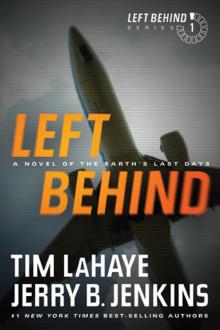 Left Behind: A Novel of the Earth's Last Days
Left Behind: A Novel of the Earth's Last Days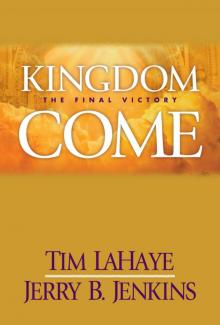 Kingdom Come: The Final Victory
Kingdom Come: The Final Victory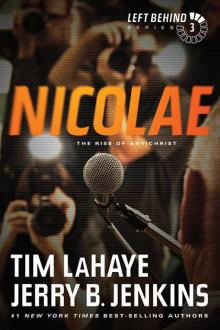 Nicolae: The Rise of Antichrist
Nicolae: The Rise of Antichrist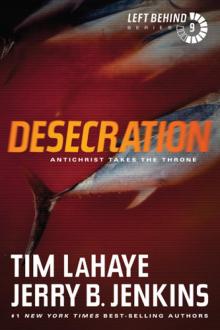 Desecration: Antichrist Takes the Throne
Desecration: Antichrist Takes the Throne Mark's Story: The Gospel According to Peter
Mark's Story: The Gospel According to Peter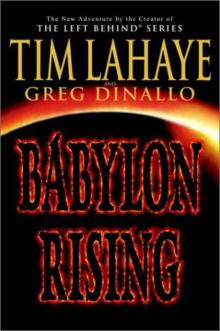 Babylon Rising
Babylon Rising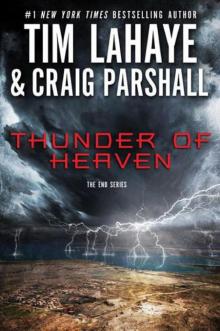 Thunder of Heaven: A Joshua Jordan Novel
Thunder of Heaven: A Joshua Jordan Novel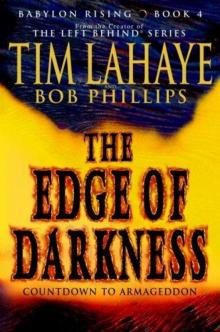 The Edge of Darkness
The Edge of Darkness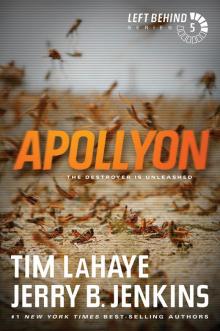 Apollyon: The Destroyer Is Unleashed
Apollyon: The Destroyer Is Unleashed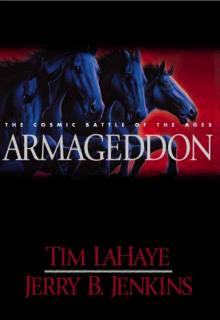 Armageddon: The Cosmic Battle of the Ages
Armageddon: The Cosmic Battle of the Ages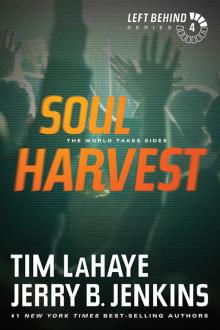 Soul Harvest: The World Takes Sides
Soul Harvest: The World Takes Sides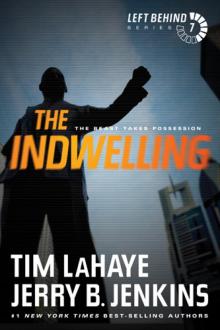 The Indwelling: The Beast Takes Possession
The Indwelling: The Beast Takes Possession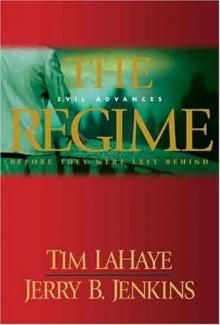 The Regime: Evil Advances
The Regime: Evil Advances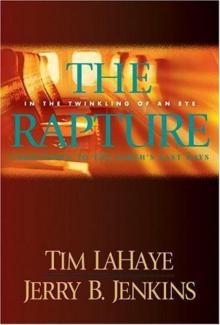 The Rapture: In the Twinkling of an Eye / Countdown to the Earth's Last Days
The Rapture: In the Twinkling of an Eye / Countdown to the Earth's Last Days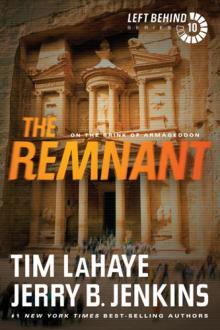 The Remnant: On the Brink of Armageddon
The Remnant: On the Brink of Armageddon John's Story: The Last Eyewitness
John's Story: The Last Eyewitness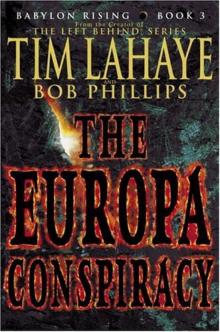 The Europa Conspiracy
The Europa Conspiracy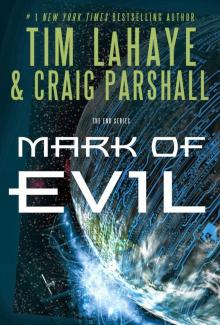 Mark of Evil
Mark of Evil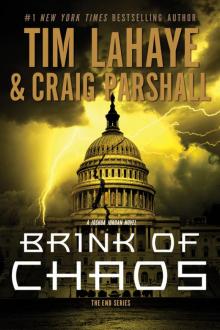 Brink of Chaos
Brink of Chaos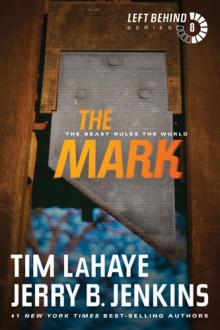 The Mark: The Beast Rules the World
The Mark: The Beast Rules the World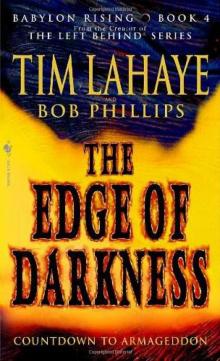 04 The Edge of Darkness
04 The Edge of Darkness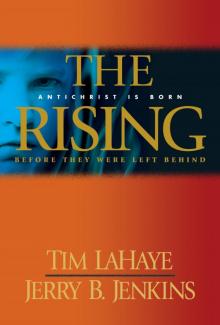 The Rising: Antichrist is Born / Before They Were Left Behind
The Rising: Antichrist is Born / Before They Were Left Behind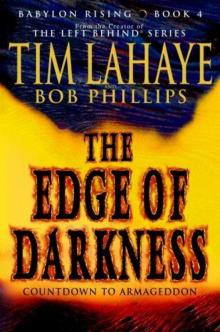 Babylon Rising: The Edge of Darkness
Babylon Rising: The Edge of Darkness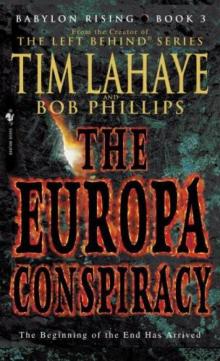 03 The Europa Conspiracy
03 The Europa Conspiracy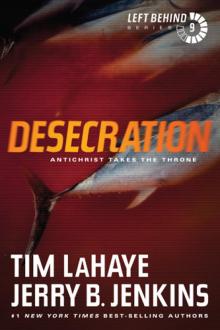 Desecration
Desecration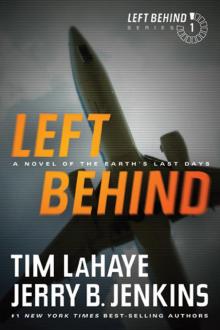 Left Behind
Left Behind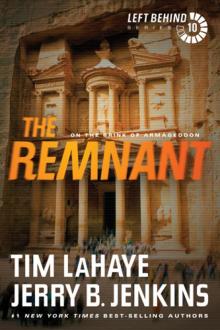 The Remnant
The Remnant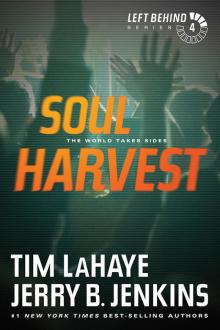 Soul Harvest
Soul Harvest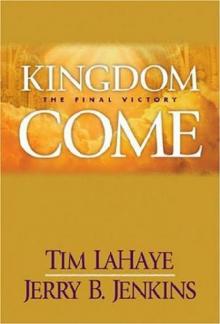 Left Behind Book 13: Kingdom Come The Final Victory
Left Behind Book 13: Kingdom Come The Final Victory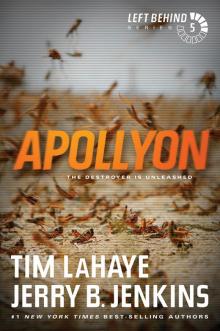 Apollyon
Apollyon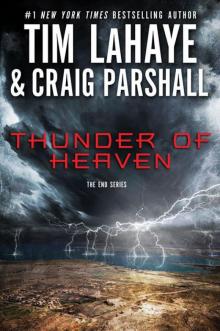 02 Thunder of Heaven: A Joshua Jordan Novel
02 Thunder of Heaven: A Joshua Jordan Novel Glorious Appearing
Glorious Appearing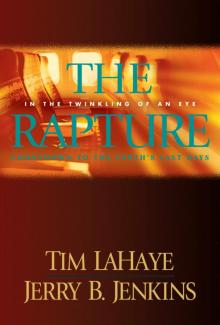 The Rapture: Evil Advances / Before They Were Left Behind
The Rapture: Evil Advances / Before They Were Left Behind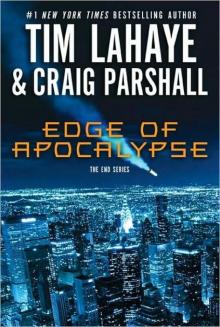 Edge of Apocalypse
Edge of Apocalypse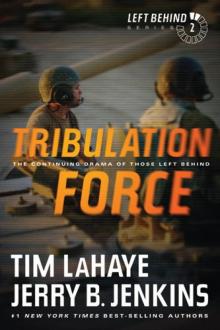 Tribulation Force
Tribulation Force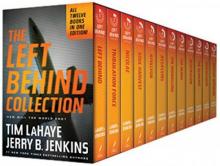 The Left Behind Collection: All 12 Books
The Left Behind Collection: All 12 Books Black Friday
Black Friday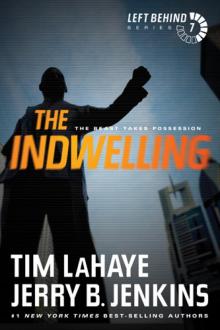 The Indwelling
The Indwelling The Left Behind Collection
The Left Behind Collection